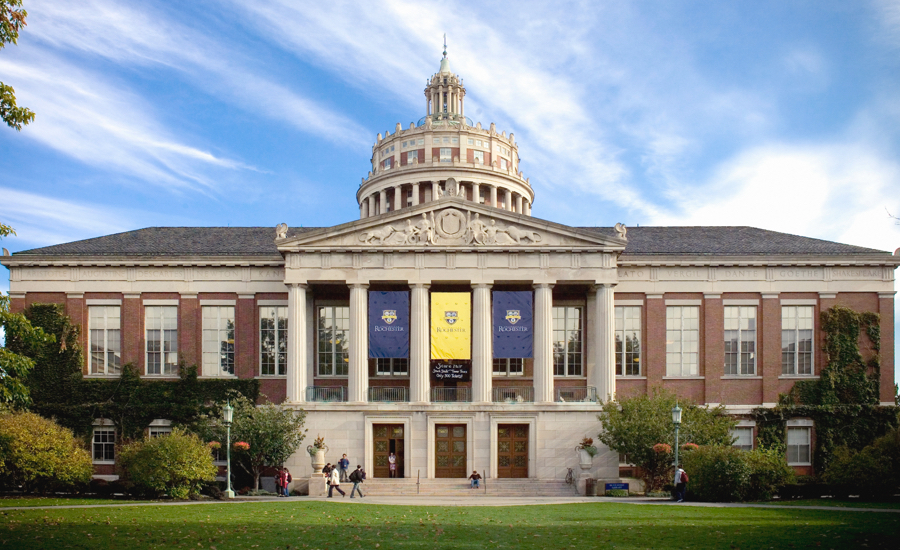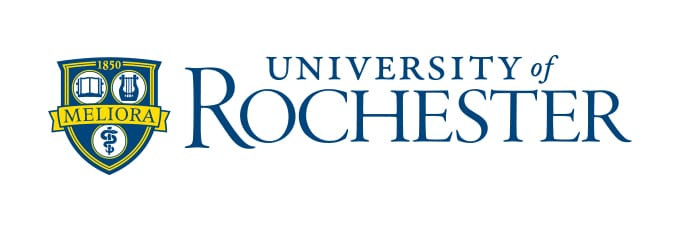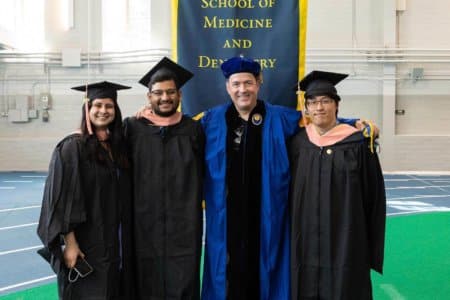Keen attention, close working relationships with your peers and faculty, and extensive participation in research — these are what you’ll get in the graduate programs at University of Rochester’s Department of Public Health Sciences (UR PHS). It’s part of one of the nation’s leading academic medical schools: the School of Medicine and Dentistry, which is ranked #40 in Primary Care and #32 in Research by US News & World Report for the 2023–24 academic year.
Here, a distinguished faculty engages in cutting-edge research spanning our entire lifespan, from maternal-child health to long-term care. The scientific inquiry conducted within the department employs a diverse range of rigorous methodologies, from high-powered analytics to mixed methods, ensuring a comprehensive and nuanced approach. For example, Professor Deborah Ossip investigated the impact of a February 2020 FDA restriction on the sale of all unauthorized flavored cartridge-based e-cigarettes other than tobacco and menthol flavour.
This is just one example of the many forms of multidisciplinary teaching and research that take place at the department and with faculty across the School and University. PHS faculty lead prominent collaborations involving faculty and students including the Health and Environmental Economics Lab (HEEL), Seychelles Child Development Study Lab, Rochester Environmental and Child Health (REACH), and The PR lab. The University itself is home to a formidable community of over 3,000 researchers and over 500 labs dedicated to a broad range of scientific research.
The work at these labs encompasses the study of common and rare illnesses, ranging from cancer and heart disease to Parkinson’s, pandemic influenza, and COVID-19. These collective efforts commonly involve trainees and have yielded groundbreaking therapies, saving lives and improving human health on a local, regional, and global scale.
One notable success story involves the intricate challenge of managing pancreatic cancer. With a unique biological makeup and a propensity to spread rapidly, pancreatic cancer has long been a formidable adversary. However, researchers at University of Rochester Medical Center achieved a breakthrough by uncovering the genetic changes that occur during tumour migration, ultimately identifying a drug capable of obstructing this process.
The PHS department extends its commitment to excellence through exceptional educational programs. These programs are meticulously designed to equip students with the knowledge, skills, and practical experience essential for success in the dynamic fields of public health and clinical research.
That’s not all. Here, trainees also gain a comprehensive understanding of research methodologies driving public health and healthcare advancements. Through hands-on experiences, students learn to conduct groundbreaking research, identify critical disease patterns, and influence preventive healthcare strategies alongside clinical experts and using cutting-edge resources.

Close interaction with faculty provides students with invaluable individual attention and mentoring. Source: University of Rochester
PHS programs have a strong emphasis on practical research and evaluation skills. They offer direct access to collaborative faculty members and state-of-the-art clinical research facilities, elevating the learning experience to a whole new level. Among the programs offered are Master’s in Public Health, Master of Science in Clinical Investigation, Master of Science in Epidemiology and Master of Science in Health Services Research and Policy. Each program prepares students with relevant skills and knowledge for high-demand careers in public health, health services research, epidemiology, and clinical research. Just ask graduate Vanessa Assibey-Mensah, who went on to serve as the Senior Epidemiologist in the Office of the Health Commissioner at the City of Philadelphia’s Department of Public Health.
“It prepared me for my current career in public health practice through training in advanced epidemiologic methods and community-based participatory research,” Assibey-Mensah says. “The experience also enabled me to summarize disease patterns and trends as input for local priority areas, evaluate existing public health programs and initiatives, measure patterns and outcomes of delivery of public health services and communicate findings to non-technical audiences, including the general public, press, and local decision-makers.”
Beyond the classroom, students thrive as part of a vibrant and diverse ecosystem of innovators. The close working relationship between faculty members and students harnesses the power of various views and backgrounds — something graduate Micah Segelman experienced. “The UR program offered many great opportunities, including meeting wonderful fellow students who can become long-term colleagues and working with a great faculty,” he says. “I enjoyed the opportunity to meet people outside of the university through conferences, lectures from visiting professors, and other guest lecturers.”
Such an environment leads to impactful discoveries and prepares students to pursue careers in multiple sectors, including academia, private industry, government agencies, and international organisationz.
If you aspire to pursue your dreams in public health and clinical research, the University of Rochester’s Department of Public Health Sciences is your gateway. Click here to learn more and embark on a transformative journey with an institution that leads the way in shaping the future of public health.
Follow the University of Rochester on Facebook, X, Instagram, LinkedIn, and YouTube












